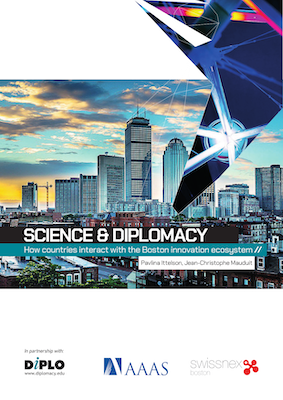Note: This article is a part of the publication ‘Science diplomacy capacity development: Reflections on Diplo’s 2021 course and the road ahead’
I am a scientist and I work as an assistant professor in academia with no background in diplomacy. However, I consider myself a ‘boundary spanner’ since I am involved in several organizations in which Science Diplomacy plays a major role.
I am an executive committee member of the Global Young Academy (GYA) which is an academy for early career researchers (ECRs). Young scientists have their own challenges and the GYA gives voice to ECRs. Some of the challenges are as follows: The GYA as a partner of the International Science Council (ISC) and InterAcademy Partnership (IAP) gives advice in science policy decisions to consider these challenges.
The EC members are the voice of members in several high-ranked meetings like the World Science Forum, Science and Technology in the Society Forum, and UNESCO meetings where Science Diplomacy happens.
The GYA also supports the establishment of National Young Academies, especially in developing countries. On the other hand, the GYA has working groups on Science Diplomacy, science advice, science communication, and open science to engage members in these topics. Several studies have been done at GYA, for example on the situation of ECRs in ASEAN, Africa, and Latin America, the effect of COVID-19 on ECRs, the situation of mother scientists, and trust in science.
Recently I established the SDG incubator at GYA to focus more on these goals and the role of ECRs to achieve them. The promotion of this incubator was the topic of SDGs during the course since I realized that most of the scientists, especially the ones from developing countries, are not familiar with SDGs and the potential of their research to achieve them.
I am co-chair of the “Preservation of Science” task team of the “Science in Exile” project of TWAS/ISC/IAP. The goal of the project is to support at-risk, displaced, and refugee scholars. In this project, I practice ‘diplomacy for science’ and I find it challenging to negotiate support for scientists. One of the main projects that I am involved in is to rescue Afghan scholars. Here taking a decision under uncertainty is more clear since the situation is critical and it is not obvious the decisions that we take will be successful in action.
I am the only female on the board of directors of the Astronomy Society of Iran (ASI) and I recently established its female branch. The evidence shows clearly that females are in the minority in STEM, however in most of the developing countries there is no policy to remove this inequality. Indeed gender equality is one of the goals of sustainable development and for achieving this we need to empower females. That is the reason, despite several challenges, that I established the female branch of the ASI to give voice to Iranian women astronomers.
The techniques I learned during the course helped me to use scientific facts in negotiation. Despite the fact that in traditional societies even scientific facts are not accepted science can still help to open the conversation.
I take political decisions in my ordinary life, however in my career as a scientist, the decisions can affect my students, colleagues, and my institute. So learning Science Diplomacy helps me to make decisions that are a greater benefit to science.







